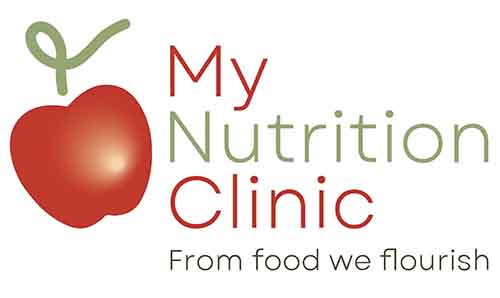Select one of the following conditions to see how diet can help
Iron deficiency anaemia is a condition where a lack of iron in the body leads to a reduction in the number of red blood cells. Iron is used to produce red blood cells, which help store and carry oxygen in the blood. The treatment for anaemia usually involves taking iron supplements along with treating the underlying cause. A lack of iron in your diet can exacerbate the condition. Our Dietitians can help you incorporate iron and vitamin C rich foods into your normal diet to prevent a reoccurrence.
If you suffer persistent problems and symptoms, you may benefit from a diet and weight assessment. Excess weight can exacerbate your symptoms. Some people also have a sensitivity to sulphites in foods. Our Dietitians can conduct a detailed diet assessment and develop a individualised plan to address your particular needs.
Treatment for cancer can place extra demands on your body, making eating well more important than ever. Good nutrition helps you get the most benefit from your treatment. Eating well is something you can control during your cancer treatment and can enhance your quality of life. During treatment you may experience several unwanted side effects which can affect your quality of life. Symptoms such as loss of appetite, taste changes and unwanted weight changes can all be helped through an individualised diet plan.
Good nutrition can:
- help you to better cope with treatment side effects and to recover sooner.
- help wounds and damaged tissues to heal better. This is important before and after surgery, radiotherapy, chemotherapy or other medical treatment.
- Help you to maintain muscle strength, stay a healthy weight, have enough energy for everyday tasks and to feel better in yourself.
- improve your body’s immune system – its natural defence – so you are better able to fight infection.
Chronic fatigue syndrome (CFS) is also called ME, which stands for myalgic encephalomyelitis. The impact of CFS/ME can be minimised through addressing any food intolerances, vitamin and mineral imbalances and undesirable weight changes.
Many people with CFS/ME find eating little and often, aiming for every three to four hours, helps to improve energy levels. Replacing carbohydrates with low Glycaemic Index foods such as traditional porridge and wholegrain cereals provide a slow and consistent release of energy throughout the day. It can be tempting to eat more refined, higher sugar foods and drinks when you are tired but these can hamper energy levels.
In congestive cardiac failure the body often retains fluid which can lean to increased blood pressure, shortness of breath, swelling in the ankles and hands and nausea. A Dietitian can help you keep within fluid restrictions/limits and increase the nutritional quality of your diet. A nutrient rich diet can help improve your heart health and maintain a healthy weight even when your appetite is poor.
Being diagnosed with Coeliac disease can cause much confusion about what to eat. A Dietitian is an essential source of advice for anyone recently diagnosed with the condition.
Coeliac disease is a condition which affects the small bowel, damaging the lining and preventing absorption of food nutrients. An immune reaction to gluten (proteins in wheat, rye, barley, triticale and oats) is responsible for the inflammation and damage to the small bowel. Without an appropriate diet plan, diarrhoea, weight loss, abdominal pain, vitamin deficiencies and aenemia can develop. A Dietitian will advise how to remove all gluten from your diet to allow your bowel to heal and develop a new life-long eating plan.
Depression can have many knock on effects on appetite, eating habits, emotional reliance on food and unexpected weight changes. Your corresponding food choices can also directly impact your mood. A Dietitian can help you take control of your eating again with mindful eating techniques and greater awareness and knowledge about nutrition.
A Dietitian can help if you have been recently diagnosed with diabetes or if you have had diabetes with recent unstable blood glucose levels, elevated HBA1c blood results, undesirable weight changes or recent changes to your medications. Good management of your blood glucose will help prevent any complications such as heart and kidney disease, stroke, foot and eye problem. Our Dietitians can provide an individualised diet plan that considers the fat, sugar, carbohydrates and fibre necessary to regulate your blood glucose levels.
Chronic diarrhoea can be debilitating and have a significant impact on your quality of life. The reasons for diarrhoea can be complex and may be linked to conditions such as Irritable Bowel Syndrome, Coeliac Disease, Inflammatory Bowel Disease or Food Intolerance. Our dietitians can assist in developing food plans to help you manage the problem.
Disabilities can have an impact on many parts of the body and with a wide range of severity. A Dietitian can help you:
- reach or maintain a healthy weight
- maximise the nutrients in your diet
- identify healthy foods which are easy to chew, swallow and eat without assistance
- Individualise advice to empower you to make better food choices
Diverticulitis is an acute and painful condition caused by infection of pockets within the bowel lining (diverticulae). Infection results in abdominal pain, bloating and changes to bowel habits. Frequent diverticultis flareups can result in longer term damage to the bowel. Research has shown that diverticular disease occurs more frequently among people whose diet is lower in fibre. During an diverticulitis attack a low fibre diet should be followed and then the fibre should be gradually increased after you have recovered. A Dietitian can help you develop an appropriate eating plan to manage acute flareups as well as provide information to assist in preventing future diverticulitis flareups.
All eating disorders come with severe medical complications and increased mortality rates. Eating disorders are complex and require the advice from from medical, psychological and dietetic specialists. A Dietitian can help establish a healthy relationship with food, healthy eating habits and a nutritionally balanced diet.
Food-hypersensitivity reactions can either involve the immune system in which case it’s called a ‘food allergy’ or it does not involve the immune system and is called ‘food intolerance’. For both, healthcare professionals such as a Dietitian should be involved, to ensure that appropriate tests are performed and to avoid unnecessary elimination diet which places individuals at risk of nutritional deficiencies.
High levels of the wrong kinds of cholesterol in the blood may increase the risk of developing heart disease. A healthy diet can help to lower your risk of high cholesterol. Cholesterol has many important functions in the body, including:
- Producing hormones
- Being part of the cell walls in the body
- Involved in the production of bile acid.
Even though cholesterol is essential for the body, having high levels of the wrong type of cholesterol in the blood increases heart disease risk. A Dietitian can develop a detailed and individualised meal plan that can help you get your cholesterol on track.
Simple changes to your diet can be a very effective part of treatment for hypertension. Cut down on salt, keep to the recommended amount of alcohol and eat a low-fat diet, rich in essential minerals – all will help to lower blood pressure. Make sure you have at least 5-a-day of fruit and vegetables, and two or three servings of low-fat dairy foods and wholegrains. Try to have one portion of oily fish each week. A Dietitian can provide an individualised diet plan to assist in normalising your blood pressure.
Inflammatory Bowel Disease is a term used to describe Crohn’s disease and Ulcerative Colitis. They cause inflammation of the bowel wall. Ulcerative Colitis causes inflammation of the lining of the colon and the rectum. Crohn’s disease causes inflammation of the full thickness of the bowel wall and may occur anywhere in the gastrointestinal tract. The cause of IBD is unknown however dietary changes can improve the symptoms.
During a flareup you may find some foods might make symptoms worse. You may choose to avoid these foods for short time. It is important to re-introduce those foods back into your diet when you are symptom free. You may find it helpful to keep a food and symptom diary to identify which foods are tolerated best. A dietitian can help you to develop an individualised meal plan to improve bowel regularity, minimise abdominal discomfort, improve body weight, improve nutritional status and optimise your immune function to assist in reducing risk of flareups.
Irritable bowel syndrome (IBS) is a condition of the digestive system that may result in a variety of uncomfortable symptoms. The foods that may help people to manage IBS vary greatly, however many people with IBS find some foods do influence their symptoms. The symptoms of IBS are also common in other bowel conditions. It is important to consult a doctor who can rule out other conditions before diagnosing IBS. The foods that help to control the symptoms of IBS will be different for different people. A Dietitian can provide individual, expert dietary advice to help manage the symptoms of IBS and ensure foods eaten meet nutritional needs.
Chronic kidney disease (CKD) is a long-term condition where the kidneys do not work effectively. A specialist Dietitian can help in the control of blood chemistry (creatinine, potassium, phosphate), maximise your nutrition when you don’t feel like eating, help you incorporate fluid restrictions and reach/maintain a healthy weight.
Three of the main causes of liver disease are: obesity; undiagnosed hepatitis infection and alcohol misuse. A Dietitian can help you reach and maintain a healthy weight and alleviate some of the symptoms such as fluid retention and unintentional weight loss.
A Dietitian can improve the outcomes of patients undergoing rehabilitation by ensuring they receive adequate nutrition to achieve their physical goals. Good nutrition can promote wound healing, optimise the immune system, improve mood and help achieve a healthy weight to help with mobility. A Dietitian can provide on-going support to patients with swallowing difficulties by managing tube feeds and advising on texture modified diets
We can help you find your motivation to change your habits for a lifetime. Our approach is individualised to suit your needs and lifestyle and take into account any other medical conditions. You will be given step by step guidance on diet and physical activity changes that will result in consistent weight loss. All we need from you is commitment and readiness to change!
Osteoporosis is a condition where bones become thin and their strength is reduced; this makes them more likely to break.There are steps that you can take to reduce the progression of the condition; like having a healthy balanced diet with plenty of calcium, vitamin D and other vitamins and minerals. A Dietitian can develop an individualised plan to match your needs and lifestyle.
Parkinson’s disease is a condition in which part of the brain become progressively damaged over many years. This can lead to symptoms such as swallowing difficulties, constipation, lower dietary intake and unexpected weight loss. A Dietitian can help to reduce these symptoms through foods that increase the effectiveness of medication, maximising the nutrients in food and keeping weight loss to a minimum.
PCOS is a relatively common condition, affecting how a woman’s ovaries work. Healthy eating and being active can help you with PCOS symptoms and are very important to help prevent developing heart disease and diabetes in the future. This includes eating lots of fruit and vegetables, choosing lean meats and low-fat dairy foods as well as limiting the amount of fatty and sugary foods and drinks you consume. All women diagnosed with PCOS should consider swapping some high GI foods with lower GI options, to help improve your body’s sensitivity to insulin. A Dietitian can advice an individualised plan to address your particular symptoms, maximise your health and reach/maintain a healthy weight.

